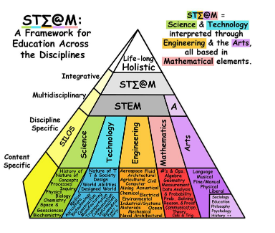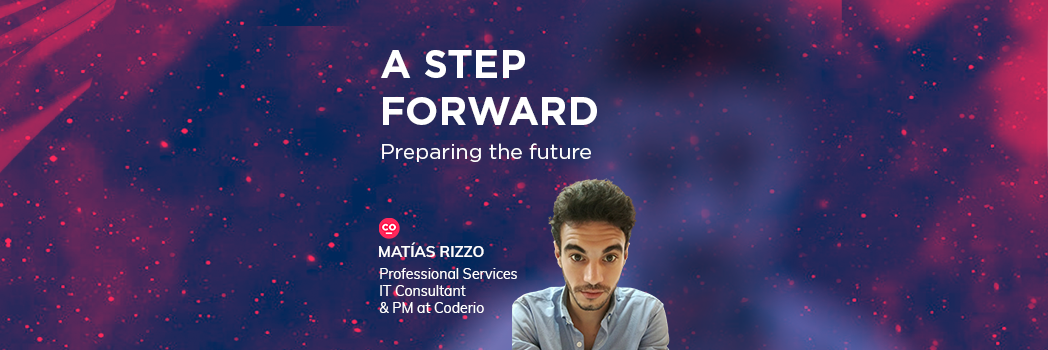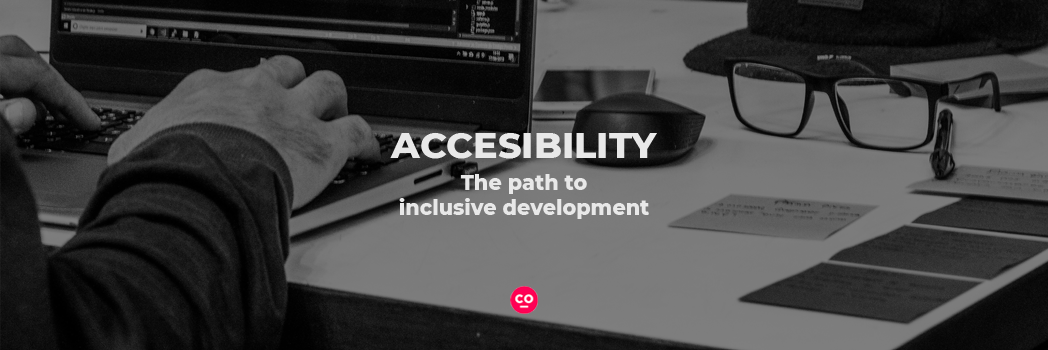Preparing the future
By @Matías Rizzo, Professional Services IT Consultant & Project Manager at coderio.
Have you heard the phrase “65% of today’s students will work in jobs that don’t exist yet”? I bet you have.
This data, which emerges from the 2016 Davos World Economic Forum report, exposes a well-known reality: Today’s education will influence tomorrow’s adults. But this point seems to hide an important fact behind the statistics. Educational institutions must anticipate the transformations that will occur in the future and prepare the citizens for that scenario.
Innovation and adaptability are the foundations of economic development, so training the protagonists of this evolution is a responsibility to face today. Teachers and educators must take on this formidable challenge: Training critical, creative, transformative, and science-based thinkers to be our leaders of opinion and action with a view to a better future.
The STEAM methodologies (an acronym for Science, Technology, Arts, Engineering, and Mathematics) were born to meet this demand. Their goal is to develop cross-sectional learning by grouping large areas of knowledge.
This concept, which emerged in the United States, ponders the development of disruptive and multidisciplinary knowledge focused on problem-solving, scientific initiation, and critical and logical thinking.

From STEM to STEAM
As in any social process, this revolutionary view of teaching had to go through countless debates and modifications until it became the integral concept it is today.
The STEM concept emerged in the 1990s at the National Science Foundation in the United States. Due to its success and efficiency, it gained popularity, so in 2010 it became truly relevant and was installed on the agenda of government policies in the region.
In its beginnings, and as a legacy of an industrial context that marked the world of the 20th century, it only focused on the hard sciences as the only ones capable of contributing to innovative development.
Within a few years, analysts, educators, and researchers realized the great potential of the arts and soft skills. So adding the “A” in the acronym STEM was an important step to foster creativity in students, enhance their skills and abilities and, in this way, enrich the rest of the knowledge in the teaching-learning process.
This milestone meant going beyond the mere addition of art to this disciplinary composition. It meant expanding the perspective towards something more than the technical or scientific, inviting to create and contribute new experiences to this methodology.
The whole is more than the sum of its parts
STEAM is an interdisciplinary and integrating pedagogical model that brings together the constructivist and holistic approach, functional literacy, and other modern theories. It uses different currents without favoring one but prioritizing the transfer of content.
Specifically, it is a learning system based on teaching these disciplines together and not separately.
But, why STEAM?
In general, this philosophy encourages students to work as a team and learn to overcome obstacles on which they must make decisions and reflect later in their professional life.
In this sense, it contributes to increasing their ability to solve problems creatively, foster individual critical thinking and self-esteem, and boost their communication skills.
STEAM uses learning techniques such as exploration, questions or surveys, making conjectures, finding solutions, and validation; while including soft skills such as teamwork, leadership, and values.
The application of emerging technologies is a valuable ally in these cases because they allow, through the explanation of hypotheses and ideas, to make connections between the objectives of problem-solving and the processes carried out.
Coderian S-TEAM
In this context of social transformation, STEAM profiles are more necessary than ever. The demand for these professionals continues to grow: their talent is essential for our future, so @_coderio knows it very well.
For this reason, the StartUp, born in 2018, is constantly searching for highly trained personnel in these disciplines. Today, it already represents a challenge for large and medium-sized companies in the IT sector.
At the same time, it proposes continuous specialization for the team through workshops in the branches that the STEAM philosophy defends, through its brand new education platform called COOLture, and the renowned coderian benefit program.
Always one step ahead, and we love it! The coderian culture is built on the foundations of innovation, personal and professional growth, and constant comprehensive learning. Without a doubt, coderio is a S-TEAM!
By Matías Rizzo, Service Consultant IT & PHP Developer at Coderio.



